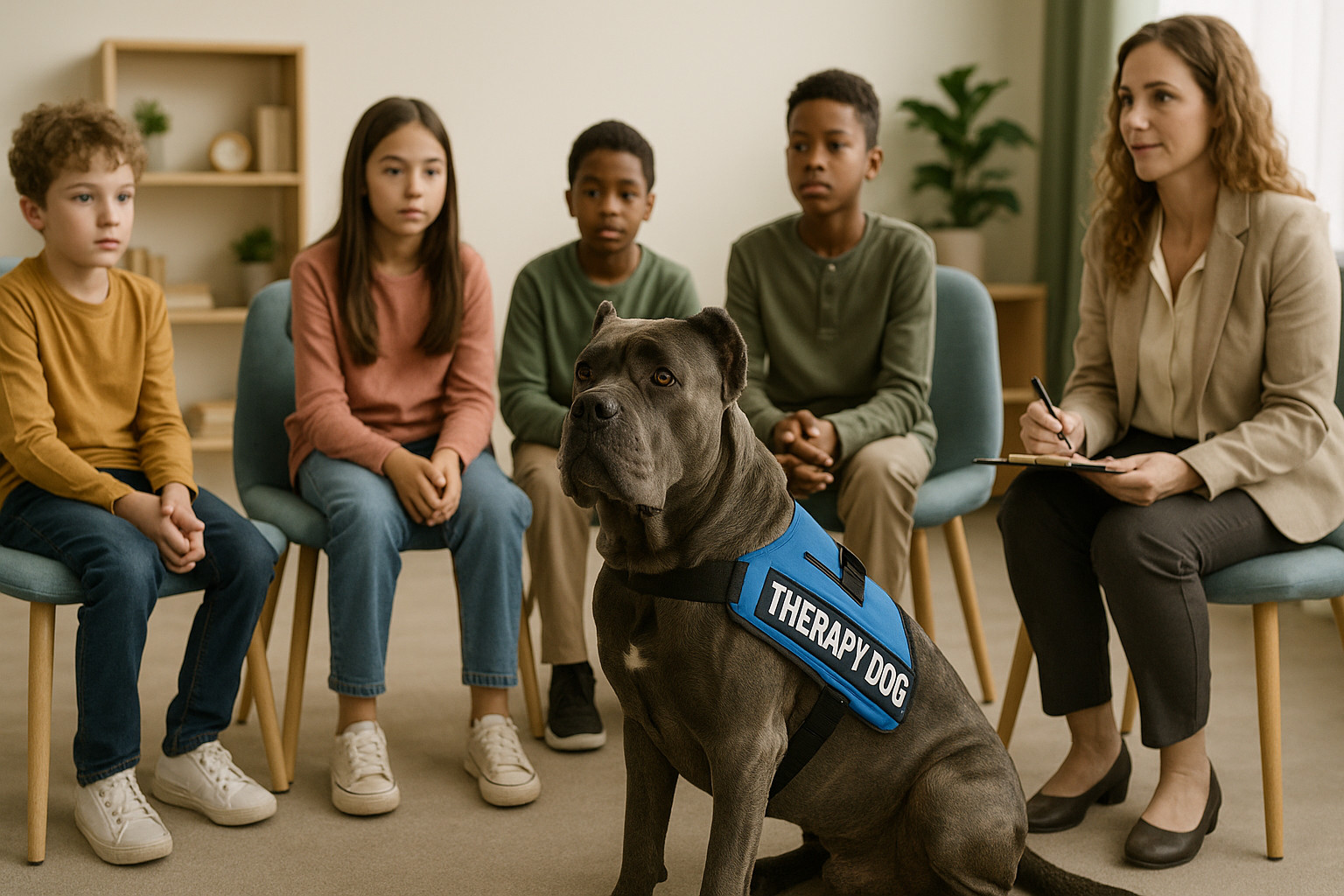Cane Corso as a Therapy Dog
Get Your Documents

The Cane Corso, a breed renowned for its strength and majestic appearance, has been historically associated with protection roles. However, its potential as a therapy dog is gaining attention due to its unique blend of loyalty, intelligence, and emotional awareness. This article delves into how the Cane Corso can excel as a therapy dog, focusing primarily on its temperament, suitability, and specific care needs relevant to therapy settings.
Cane Corso as a Therapy Dog Overview
Understanding the Therapy Dog Role
Therapy dogs provide comfort, emotional support, and joy in various settings, from healthcare facilities to schools. Unlike service dogs, their primary role is to evoke positive emotions and offer companionship. A therapy dog must exhibit patience, a stable temperament, and an ability to form connections with diverse individuals.
Physical Appearance and Energy Level
The Cane Corso, with its powerful build and solid posture, presents an intimidating figure at first glance. However, its physical presence can evoke a sense of protection and calm, which is reassuring for many individuals in therapy settings. With a high energy level that requires regular exercise, the Cane Corso remains alert and responsive, vital qualities for engagement during therapy sessions.
Personality and Emotional Intelligence
- Loyalty and Devotion: The Cane Corso is extremely loyal, forming strong bonds with its handler and those it interacts with regularly. This is particularly beneficial in long-term therapy scenarios where consistency and familiarity enhance therapeutic outcomes.
- Calming Presence: Despite their energetic nature, Cane Corsos exhibit a calm demeanor when socialized and trained appropriately. Their steady presence can significantly soothe anxiety and stress in individuals.
- High Emotional Intelligence: This breed is acutely aware of human emotions, often responding to subtle cues and emotions, making them adept at interpreting and responding to the needs of those they are assisting.
Environments Where Cane Corso Excels
Cane Corsos adapt well to structured environments where there are clear expectations and routines. Their size and nature make them particularly suited to:
- Hospitals and Rehabilitation Centers: Where their stable presence can comfort patients undergoing treatment.
- Residential Care Facilities: Providing companionship to the elderly or individuals with chronic illnesses.
Common Therapy Settings
- Schools: Can offer a sense of grounding for children, particularly beneficial for those with anxiety or special needs.
- Hospices: Their empathetic nature can provide solace to those in the final stages of life, extending comfort to family members as well.
- Veterans’ Facilities: Helping individuals cope with PTSD by providing unconditional companionship and fostering social interactions.
Interactions with Different Populations
- Children: Their patient nature and large, cuddly form make them excellent companions for children, especially those with developmental disorders.
- Elderly: Their gentle and considerate nature helps them connect deeply with older adults, providing both emotional support and physical comfort.
Health and Wellness Factors
Lifespan and Common Health Issues
Typically, Cane Corsos have a lifespan of 9 to 12 years. Being aware of their predisposition to certain health conditions is crucial:
- Hip Dysplasia: Affects mobility; regular check-ups and appropriate exercise routines can help manage this.
- Eyelid Abnormalities (Entropion/ Ectropion): Regular veterinary care and potential surgical interventions may be necessary.
- Heart Conditions: Routine screenings vital to ensuring their well-being over time.
Maintenance and Care Needs
- Grooming: Requires minimal grooming due to their short coat, a benefit in therapy settings where cleanliness is crucial.
- Exercise: Need for regular, consistent exercise to manage their energy levels, ensuring they are calm during therapy sessions.
Training and Certification Readiness
Learning Style and Responsiveness
- Intelligence and Training: Their keen intelligence makes them quick learners; however, consistent training methods and positive reinforcement are essential.
- Adaptability: Flexibility in learning and adaptability in various environments cater well to the dynamic nature of therapy work.
Handling Social and Emotional Stimuli
- Sensitivity to Stimuli: Cane Corsos are astute observers, quickly picking up on emotional cues, which enhances their ability to provide tailored support.
- Socialization: Early socialization is crucial to familiarize them with different environments and reduce any anxiety related to new experiences.
Strengths, Limitations, and Ideal Roles for Cane Corso
- Strengths: Strong bonds with humans, calm demeanor, excellent physical presence, high emotional intelligence.
- Limitations: Not ideal in settings with individuals afraid of large dogs; require experienced handlers who can manage their strength and training needs.
- Ideal Roles: Best suited for environments where their size and calm demeanor are advantages, such as rehabilitation centers, hospices, and schools.
Final Thoughts
The Cane Corso can thrive as a therapy dog, bringing comfort and stability to those in need. While their imposing size could be a hurdle, their loyal, intuitive, and calming presence often wins over individuals and creates memorable and impactful therapy experiences. However, the responsibility falls on the handler to ensure they are trained appropriately and suited to the tasks they perform.
—
Key Takeaways for the Cane Corso as a Therapy Dog
- Best suited for: Hospitals, residential care facilities, schools, and veterans’ facilities.
- Not ideal for: Environments where individuals may have a fear of large dogs.
- Temperament highlights: Loyal, calm, emotionally intelligent, adaptable.
- Care and health notes: Regular exercise, minimal grooming; vigilance for hip dysplasia and heart conditions.
- Therapy environments where they shine: Structured environments with clear routines like rehabilitation centers and hospices.
Get Your Documents
Example State Cards













